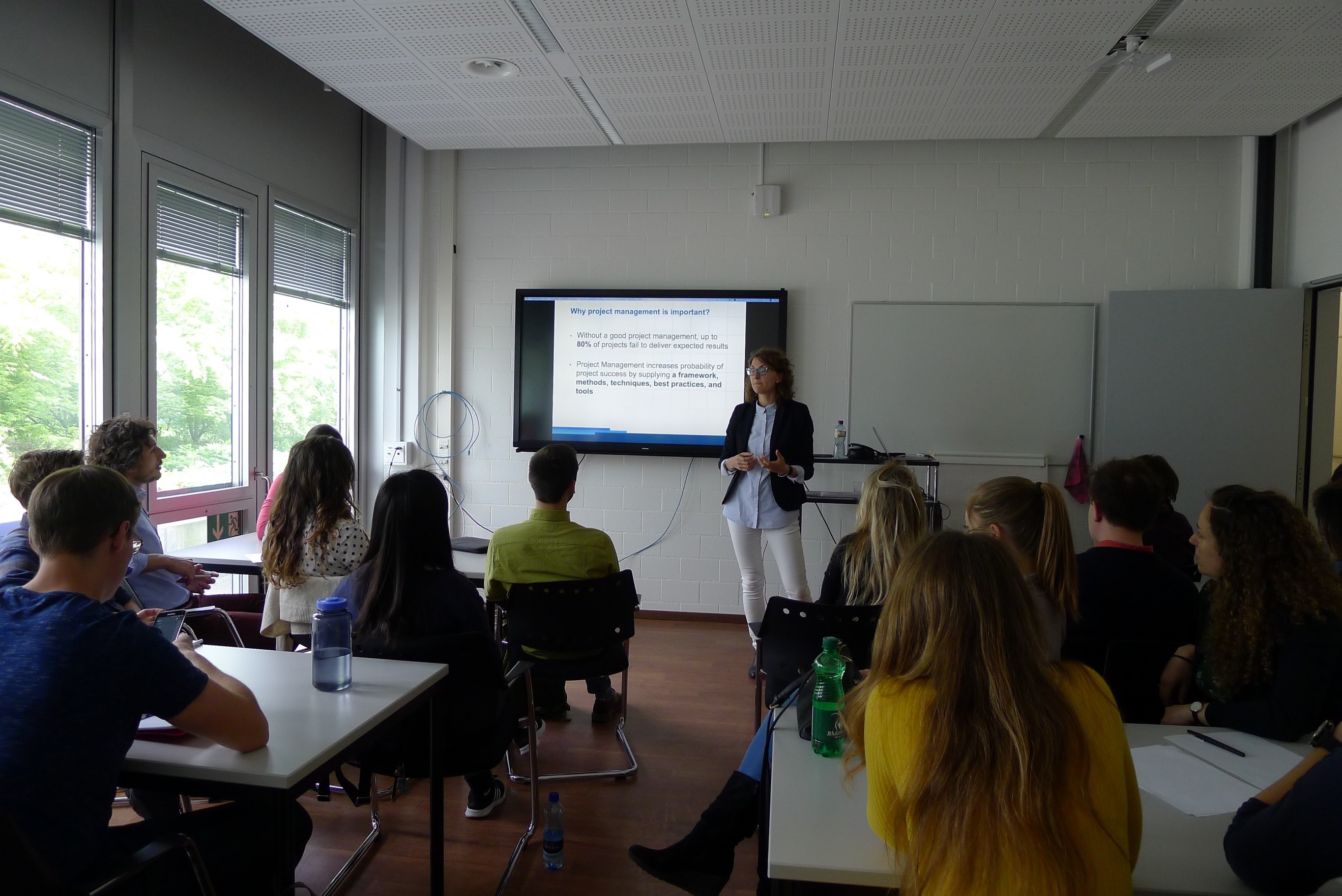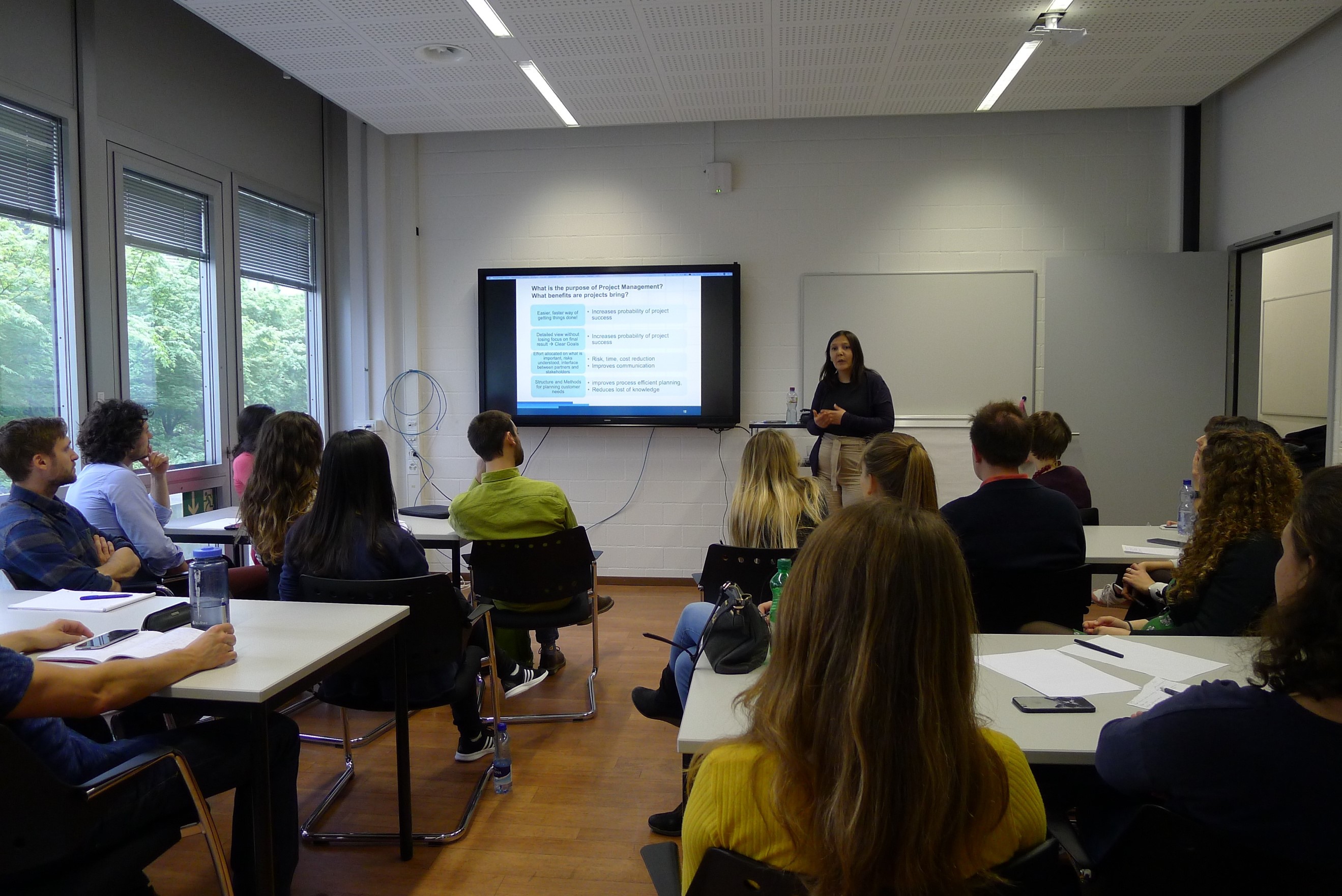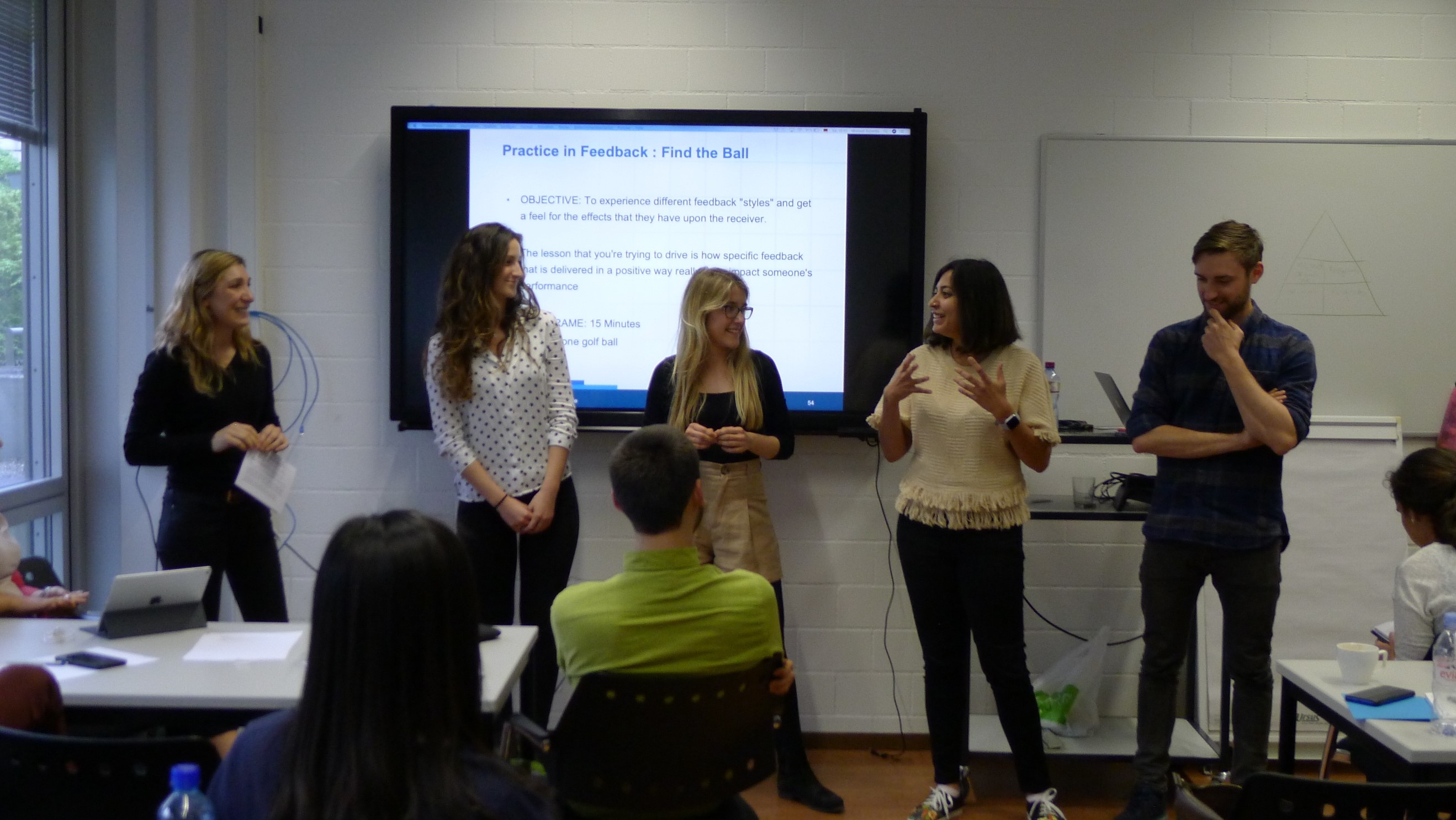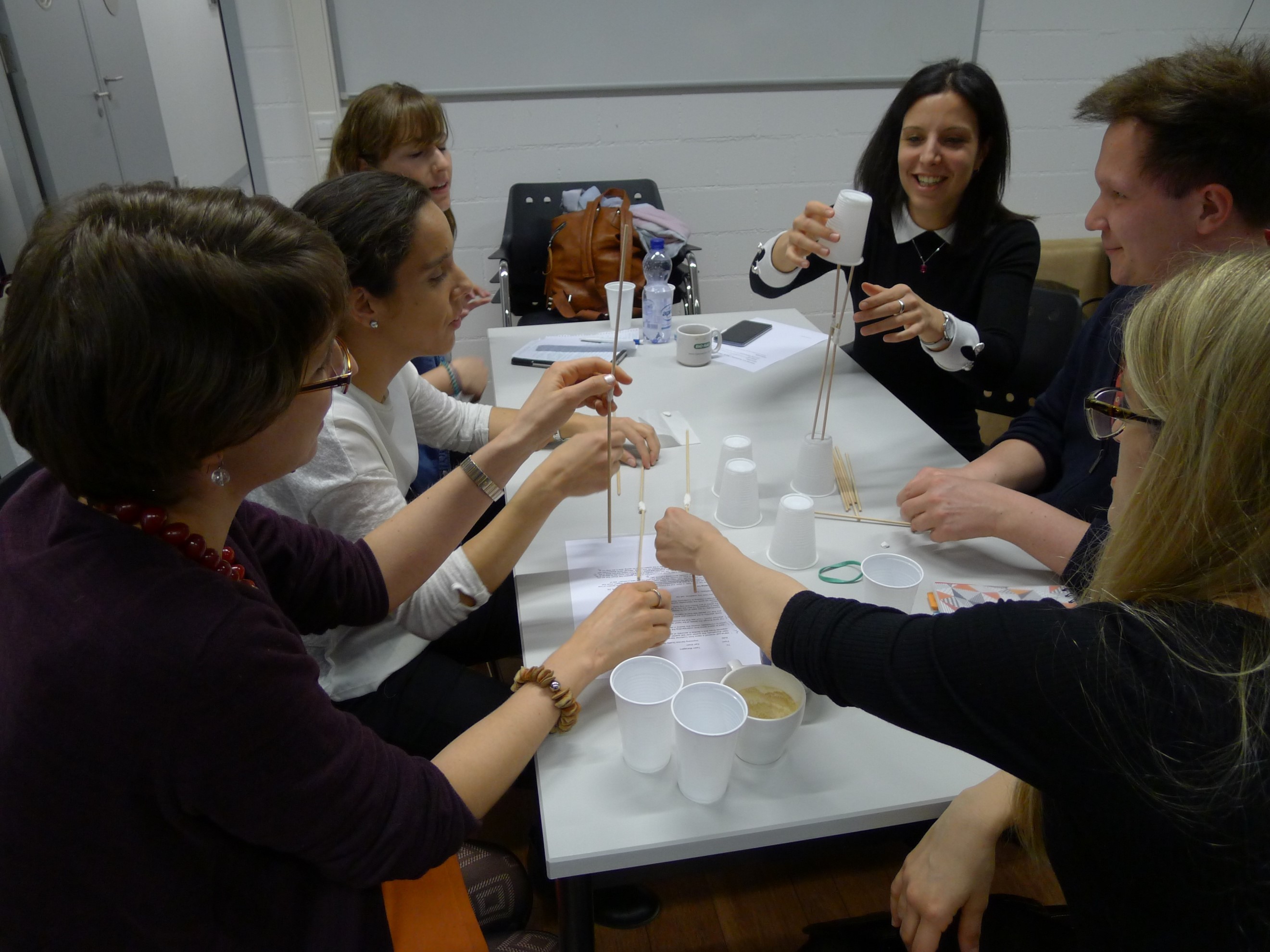Author: Ka Yi Hui, PMP

The Global PMI recently launched a new social good initiative, “Diversity, Equity & Inclusion”. The mission of this initiative is to foster a global work culture that celebrates individuals with diverse backgrounds, such as race, gender, and age. In alignment with this initiative, the PMI Switzerland Social good team collaborates with local non-profit organizations and communities that share the same mission. We would like to 1) showcase their work with our PMI community to raise awareness and 2) promote project management education to that organization and their community.
We are happy to announce our first collaboration of this kind with Girls in Tech Switzerland. In September, we will hold a series of workshops to help students and young professionals take their project management skills to the next level.
In this article, we are excited to interview Anne-Sophie Scharff, the Chief Happiness Officer of GirlsInTech Switzerland. She will share her journey working with GirlsInTech. We hope it will inspire you to dig deeper into this topic and take action in supporting gender equity.
Girls in Tech is a non-profit organization founded in 2007 aiming to eliminate the gender gap in the tech industry. There are more than 60,000 members in 50+ chapters around the world. The Switzerland chapter was founded in 2016 with over 1’100 members. Its mission is to build a diverse and inclusive community by empowering women across industries and inspiring women through learning and networking opportunities.

“Hey, I would love to get involved” - the journey begins.
Anne-Sophie Scharff is originally from Belgium and started her career in the fashion industry. It has been 4 years since she moved to Geneva, Switzerland. Professionally, she is the Social Media Practice Lead at Digital Luxury Group, a digital marketing agency active in the luxury industry. In her spare time, she works on a project called The Independent Brand Guide to support independent fashion brands to shift the consumption habits in the fashion industry.
The story begins in early 2020; after settling down a bit in the Swiss work life, she was keen to join some local community and connect with like-minded people. It is a bit of serendipity; she came across the Instagram account of the GirlsInTech Switzerland chapter. Anne-Sophie, being passionate about gender equity, was immediately impressed. So, with her direct message to the team in GiT, “ Hey, I would love to get involved in your organisation,” she started her journey with GiT. She first started as an event manager and then joined the board as the Chief Happiness Officer and head of events.
“I have no idea how tall you are” - making the virtual team works!
As the name “Chief Happiness Officer” suggests, she is responsible for the GiT team’s happiness, a team of 13 women across Zurich and Geneva. “I make sure the team has everything they need to do the job properly, and also they are happy to be part of the organization because we are non-profit, so it’s really important people enjoy working within the organization.”
Under the current pandemic situation, the one question lingering in the board’s mind was, “Would it work if we completely rely on working virtually? There will be new team members, and we haven’t even met each other in person!” Last summer, the new GirlsInTech team spent a weekend together in a 2-day online team-building event. Before kicking off a year’s events, the team members got a chance to get to know each other via games and breakout room sessions. “It’s very important that each member’s voice is being heard.” They brainstormed, aligned with the vision of the board, and planned the events for the year. “It’s really impressive that it worked out very well even if we’ve never met each other in-person. I was amazed after spending 2 days online, everyone still had a lot of energy, enthusiasm. We laughed and had a lot of fun. I think it’s because we are a group of passionate women who want to work together to achieve something bigger than ourselves.”


Finally, in July 2021 the Girls in Tech team has a chance to meet each other in-person in Fribourg
One objective, different ways
GirlsInTech Switzerland promotes its mission with events, blog and social media content. They offer events and workshops related to tech and career at least once per month, for example, building a personal online CV, customer service chatbot, using the design thinking framework for personal goals. They also have advanced topics such as women in the startup world. In June, they invited several role models locally to share the challenges and opportunities women face in the startup world. Usually, they also organize networking events; however, that’s happening less right now due to the pandemic restrictions. “It’s really fulfilling and rewarding to see how useful the events are for our community and the value they create. For example, we had an event on cryptocurrency in April and afterwards we received a message from a participant thanking us for giving her the opportunity to learn about this very critical skill.” As their events are always relevant and appeal to everyone, not just women, they often get asked whether men can join their events. The answer is Yes; they always welcome men to be a part of the conversation.
Another big part of GiT’s work is to raise awareness through social media and blog content. There are three main blog series. The “Women who inspire us” series shares interviews with women leaders in the field. The “Decoding tech” series explains and introduces concepts in the tech industry. The “Her story” series features their members where they can tell their life stories, career paths with the community. Anne-Sophie recalled a memorable post from one of the members, Taisha who shared her story about imposter syndrome which resonated very well within the community. At the beginning of the pandemic, they also curated a series on lockdown resources.
“no action is too small”
Finally, Anne-Sophie shares how you can engage in gender equality. “If you have the time and energy, I encourage everyone to volunteer with an organization that resonates with your values and passion. It’s an amazing experience to meet and connect with like-minded people. No one is too small to help change the status quo, and no action is too small. We can do many things for gender equality and diversity to promote female empowerment; whether you are a man or a woman, you can always question the standard practices where you work in your social environment. You can also encourage people to speak up when they are not doing so in meetings. Whether you are a seasoned professional or just starting with your career, we can all contribute by mentoring other women, help them, give them advice; no matter your age, experience, or background, we all have some knowledge and experience to share with others, support one another and enabling the community to do the same.”
Learn more about the PMI “Diversity, Equity & Inclusion” initiative
https://www.pmi.org/membership/volunteer/pmimpact/diversity-equity-and-inclusion
Join our upcoming project management workshop!
https://www.eventbrite.com/e/take-your-project-management-skills-to-the-next-level-tickets-165393254677
GirlsInTech Global
https://girlsintech.org
Follow GirlsInTech Switzerland on their social media:
https://switzerland.girlsintech.org
https://www.linkedin.com/company/girls-in-tech-switzerland/
https://www.instagram.com/girlsintechswitzerland/











